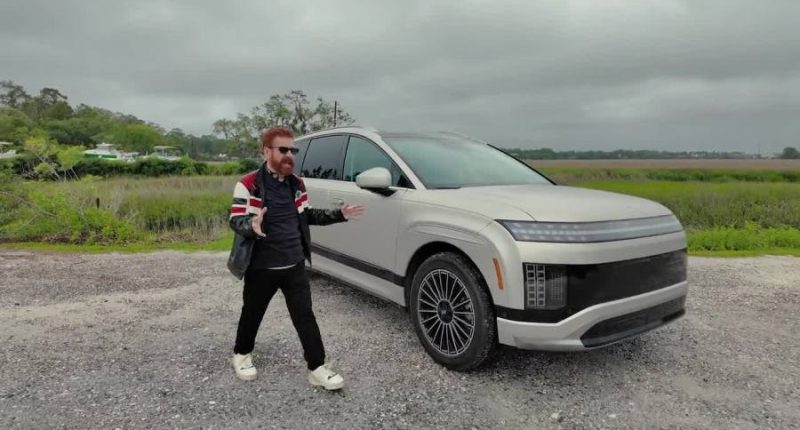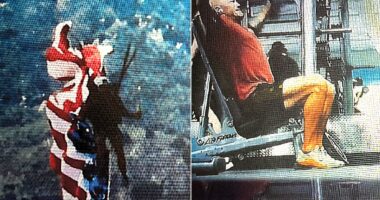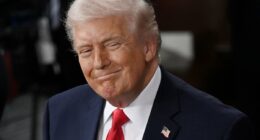Share this @internewscast.com

For years, Korean car manufacturers were often the subject of jokes. They were known for being economical and practical, yet forgettable. However, fast forward to 2025, and the tables have turned. It’s no longer about whether Hyundai and Kia can stand their ground against competitors—it’s about whether other brands can keep up with them.
From the bustling streets of Seoul to the tech hubs of Silicon Valley, Korean automakers are offering much more than just affordable cars. They’re gaining acclaim for their cutting-edge innovation, top-notch production quality, and contemporary design approach—achieving all this without leaning on nostalgia, seeking out high-profile logos, or relying on extravagant advertising plans. If you’re still viewing Hyundai and Kia as secondary choices, then you’ve not been keeping up with the times.
Why Do These Cars Matter Right Now?
Two words: market disruption.
The Hyundai Ioniq 5 and Kia EV6 do more than simply compete in the electric vehicle market—they are transforming it. Constructed on the advanced Electric Global Modular Platform (E-GMP), these vehicles are far beyond mere regulatory-compliant models with a modern guise. They are meticulously engineered EVs featuring an 800-volt framework, able to recharge to 80% in less than 20 minutes, and boast a driving range that holds steady even at 70 mph speeds.
In short, they do the things American and European EVs promised but haven’t quite delivered.
Meanwhile, the Kia K4 GT-Line Turbo dares to inject style into the soul-sucking segment known as “compact sedans.” It’s sleek, confident, and blessedly not designed by committee. While Detroit can’t seem to quit chrome and fake vents, Kia’s turning minimalist aggression into an art form.
How Are They Building These Cars Differently?
This is where Korea pulls ahead.
Hyundai’s smart factories—particularly the $7.6 billion mega-site in Georgia—aren’t just PR stunts. They use robotics, AI, and real-time analytics to reduce production time and eliminate the sort of inconsistencies that plague legacy assembly lines. Think of it as Tesla’s Gigafactory vision, minus the chaos and tweets.
By streamlining operations, Hyundai isn’t just cutting costs; they’re boosting quality and speeding up innovation cycles. The result? Faster rollouts, fewer recalls, and tech that actually works out of the box.
What About Safety and Features?
Korean brands used to play catch-up. Now they’re leading.
Hyundai and Kia’s blind-spot view monitor is a case in point. Instead of a flashing light on your mirror, the system gives you a live video feed of what’s in your blind spot, projected onto your instrument cluster. It’s simple, elegant, and absurdly useful. You’d think this would be standard everywhere. It isn’t.
This kind of thoughtful tech is becoming the norm in Korean cars—from augmented reality head-up displays to biometric fingerprint access. Meanwhile, some legacy brands are still figuring out how to make wireless Apple CarPlay work without a subscription.
Who Are These Cars Really For?
Anyone who’s tired of automotive mediocrity.
If you want a car that feels like it was built this decade—not the last one—the new Korean lineup is for you. Hyundai and Kia are offering EVs that don’t make you compromise, sedans that don’t bore you to death, and SUVs with actual personality.
They’re not chasing badges or nostalgia. They’re building what the market actually wants. And they’re doing it faster than most automakers can schedule a PowerPoint meeting.
What’s the Long-Term Significance Here?
This is about more than a few good cars.
It’s about a paradigm shift. Korea is showing what happens when you combine government support, corporate ambition, and a genuine desire to challenge the status quo. The country that once licensed designs from Mitsubishi is now outpacing Germany in EV infrastructure and teaching Detroit how to build factories.
And while the West dithers over tariffs, legacy platforms, and what to do with all those old V6s, Korea is laser-focused on what’s next—solid-state batteries, hydrogen trucks, AI-driven manufacturing, and software-defined vehicles.
Final Thoughts: Lessons from Seoul
Korea didn’t get here overnight. It took decades of quiet progress, design refinement, and some very public missteps (we see you, exploding engines). But now, the nation’s automakers are commanding global respect—and pushing competitors to raise their game.
So what can the rest of the industry learn?
Stop chasing shareholder-friendly nostalgia. Start embracing efficiency, transparency, and actual consumer needs. And maybe, just maybe, take a good long look at the Kia EV6 before you greenlight another badge-engineered crossover.
Because in the race for automotive excellence, Korea isn’t catching up anymore. They’re setting the pace.

















